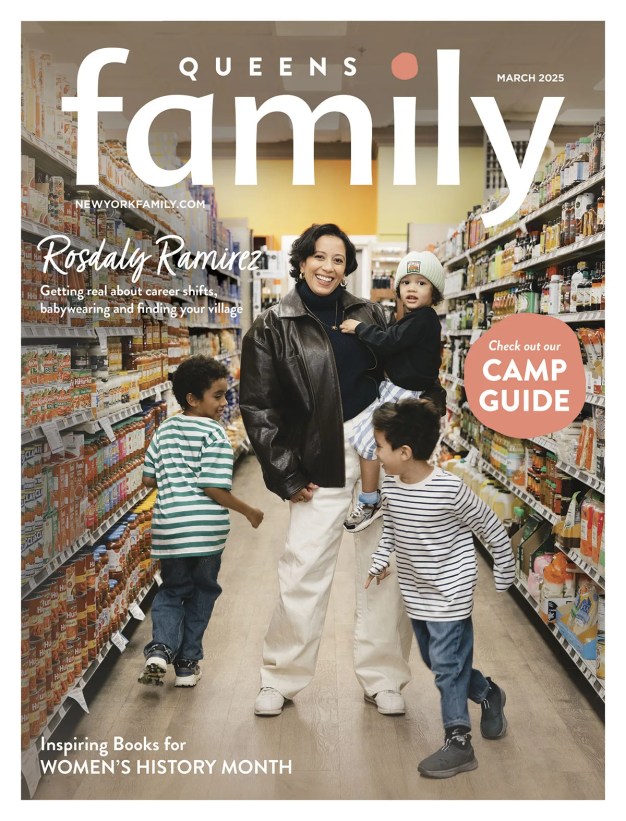As a family physician, each day I am often asked by new moms what supplements they should take now that they are nursing, and if what they eat affects the quality of their milk. The answer is, yes!
For mothers who can and choose to breastfeed, there are certain vitamins and minerals that are correlated with the mother’s dietary intake. There’s so much we’re learning about how breast milk is correlated to a baby’s immune system, gut health and protection from allergic diseases (e.g. food allergies, seasonal allergies, and eczema). Long term, breast milk has been shown to prevent obesity and potentially increase intelligence. Mothers now have the opportunity to optimize their diet and supplements, increase the nutritional value of their breast milk and maximize the benefit to their children.
I am a family physician, educator, and mother-of-two that breastfed both of her children. It was only when I was trying to juggle the challenges of a full time medical practice, being on call and worrying that my daughter was not gaining enough weight despite drinking a good enough volume of breast milk that I started to ask myself what was in MY milk.
The idea of women wanting to know what is in their milk is not new. In 1978, a method called “creamatocrit” was developed. This was a way of approximating how much fat and therefore calories were in a breast milk sample, based on the size of the fatty layer of milk after it was spun down in a centrifuge machine. It was rudimentary and could not, however, measure the levels of vitamins or toxins in breast milk.
In nearly 40 years, little advancement in breast milk testing was achieved, so I decided to use the academic resources available to me, consult with my colleagues and develop a unique, comprehensive set of tests specifically for breast milk. I spent over a year working with top chemists to develop a simple, at-home breast milk test to empower moms with nutritional information such as fat and calories, vitamin and mineral content and even whether their breast milk contained potentially toxic substances such as arsenic or mercury.
Because of its influence on infant growth and neurological development, we have seen a growing appreciation of the importance of promoting and supporting breastfeeding. Recent research shows that the nutritional value of breast milk is linked to maternal diet. This is particularly true of omega 3 and 6 essential fatty acids such as DHA. They are called “essential” as our body doesn’t make them and they must be obtained through food. we need to eat them. Our body cannot synthesize omega-3 and 6 fatty acids such as DHA, ALA, ARA and LA. They must be consumed in our diet. DHA in breast milk has been shown to be important for neurodevelopment, has been associated with lower rates of asthma, allergies and have even been associated with higher levels of intelligence.
A study in South Dakota showed how moms could increase the levels of essential fatty acids in their breast milk with simple dietary changes. Women had their breast milk samples individually tested for DHA levels and were provided individualized dietary recommendations. For some, this meant adding more foods that are rich in DHA and for others, DHA supplements were recommended. Women who complied with the recommendations were found to have higher levels of DHA in their breast milk.
Fish is the main dietary source of omega-3 fatty acids, but due to concerns about mercury contamination, pregnant and breastfeeding moms are advised to eat fish no more than 2-3 meals per week. Certain types of fish, such as swordfish, mackerel and some types of tuna, that should be avoided altogether when nursing.
Research has also shown that a mother’s consumption of the following vitamins and nutrients directly affects levels in her breast milk:
- Vitamin A, which is important for vision, skin and skeletal growth. Vegetables that are rich in organic colors are also rich in Vitamin A. These include carrots, sweet potatoes, and orange peppers, for example. Dietary sources of Vitamin A include liver from any animal, egg yolks, sweet potatoes, carrots, and squash.
- Vitamin B6, which can be found in turkey, pork, pistachio nuts, sunflower seeds, fish, and dried fruits.
- Vitamin B12, which is found in chicken livers, clams, crab, fortified cereals, some milk and yogurt.
- Vitamin C, whose sources include citrus, dark leafy greens, strawberries, and melons.
- Calcium, which is present in dairy and green leafy vegetables.
There are, however, nutrients with no apparent were no correlation between a mother’s level and that in her breast milk was found, or no definitive link has yet been proven. For example, some iron has been controversial. Some studies have linked the level of iron in breast milk it to increased levels in maternal diet, while others have not. Although it is recommended that a lactating woman consume 9-10 mg of iron a day, it is unclear how much this should increase when nursing. Studies were inconclusive because they failed to control for the amount of blood loss and changes in maternal iron stores after delivery.
The American Academy of Pediatrics recommends a universal supplement of 1 mg/kg of iron and 400 IU of Vitamin D per day for breastfed infants. Many others and doctors I know don’t necessarily carry out this recommendation as the iron supplements can be difficult for a newborn to digest and many mothers believe can increase gas and fussiness. It is suggested that all infants be screened for anemia by 12 months of age. Vitamin D is universally low across milk of all species.
As a scientist and physician, I’m enthusiastic about the growing research around the incredible power of breast milk and our ability to enhance its nutritional quality through our lifestyle choices. I am proud to offer a test that will empower women to optimize their child’s health.
To learn more, visit lactationlab.com!
Dr. Stephanie Canale earned her undergraduate and medical degrees from McGill University. She completed her residency training in Family Medicine at UCLA. After medical residency, she joined the teaching faculty at the UCLA Family Health Center, before joining the Santa Monica Parkside office. She enjoys seeing patients of all ages, especially families with young babies. Dr. Canale is a Member of the American Board of Family Medicine.


























